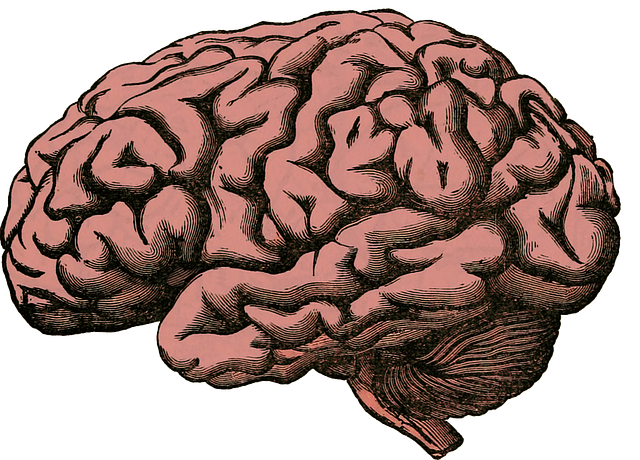Lafayette Chronic Illness Therapy offers specialized Crisis Intervention Team (CIT) training, empowering healthcare professionals to manage severe mental health crises effectively. This holistic program combines interactive sessions, scenario simulations, and Mental Health Awareness principles to build resilience, enhance communication skills, and foster inclusive environments. CITs at Lafayette address both psychological and physical aspects of chronic illness management, promoting well-being for supported individuals and professionals alike. Their training equips individuals with practical crisis intervention skills applicable in various settings, leading to better mental health outcomes, improved employee well-being, and enhanced community safety.
“In today’s complex landscape, effective crisis intervention is a vital pillar of mental health support. Lafayette Chronic Illness Therapy (LCIT) stands as a renowned beacon, offering comprehensive crisis intervention team (CIT) training programs. This article delves into the critical role of CITs, highlighting LCIT’s innovative approach. We’ll explore essential components of successful training, from practical skills to emotional resilience. Furthermore, we’ll examine real-world applications, demonstrating how LCIT empowers teams to navigate crises and foster healing.”
- Understanding Crisis Intervention Teams: Their Role and Importance in Mental Health Support
- Lafayette Chronic Illness Therapy: A Comprehensive Approach to Training
- Essential Components of Effective Crisis Intervention Team Training Programs
- Implementation and Benefits: Real-World Applications of Crisis Intervention Skills
Understanding Crisis Intervention Teams: Their Role and Importance in Mental Health Support

Crisis Intervention Teams (CITs) play a pivotal role in providing immediate and effective support to individuals experiencing severe mental health crises. These teams, often composed of trained professionals from various disciplines, including therapists and first responders, are designed to de-escalate situations and offer comprehensive care. At Lafayette Chronic Illness Therapy, we recognize the significance of CIT training in empowering mental health professionals to handle complex scenarios with empathy and expertise.
The role of these teams extends beyond acute interventions; they foster a culture of resilience and self-care practices among their members. By integrating positive thinking and effective risk management planning, CITs ensure that both the individuals they support and the professionals themselves can navigate challenging situations with enhanced coping strategies. This holistic approach to mental health support not only benefits those in crisis but also contributes to the overall well-being of the community.
Lafayette Chronic Illness Therapy: A Comprehensive Approach to Training

Lafayette Chronic Illness Therapy offers a comprehensive approach to crisis intervention team training programs. This program goes beyond traditional first-response strategies by focusing on both the psychological and physical aspects of managing chronic illnesses. Participants gain insights into burnout prevention strategies for healthcare providers, enhancing their ability to effectively support individuals navigating mental health challenges. The curriculum integrates Mental Health Awareness principles, ensuring that team members are well-equipped to recognize and address mental wellness issues within their communities.
Through interactive sessions and real-life scenario simulations, the training equips healthcare professionals with tools to manage acute crises while promoting long-term mental wellness. This holistic approach complements the popular Mental Wellness Podcast Series Production, providing a multimedia resource for ongoing learning and skill development. By fostering a culture of resilience and empathy, Lafayette Chronic Illness Therapy empowers crisis intervention teams to make a lasting impact on the mental health landscape.
Essential Components of Effective Crisis Intervention Team Training Programs

Effective crisis intervention team training programs are multifaceted and integral to preparing healthcare providers for high-stress situations. At Lafayette Chronic Illness Therapy, we emphasize the following key components to ensure comprehensive preparation. First, cultural competency training is paramount, equipping teams with the skills to navigate diverse backgrounds and beliefs, especially in communities where mental illness stigma reduction efforts are ongoing. This fosters an inclusive environment, enhancing trust and cooperation during crises.
Additionally, these programs must incorporate practical conflict resolution techniques tailored for crisis scenarios. Training should simulate real-world situations, allowing participants to practice de-escalation strategies, communication skills, and collaborative problem-solving. Through role-playing and scenario-based learning, teams build resilience and gain confidence in handling crises effectively, ultimately improving patient outcomes and community safety.
Implementation and Benefits: Real-World Applications of Crisis Intervention Skills

The real-world applications of crisis intervention skills are vast and impactful, making effective training programs like those offered by Lafayette Chronic Illness Therapy a game-changer in various sectors. These programs equip individuals with the tools to handle critical situations, from workplace stress to personal crises. By participating in simulations and role-playing scenarios, participants learn to recognize signs of distress, provide immediate support, and de-escalate high-pressure situations. This practical training translates into better mental health outcomes and enhanced resilience in daily life.
The benefits extend beyond individual growth; organizations benefit from improved employee well-being and productivity. Stress Management Workshops within these programs teach effective coping strategies, fostering a healthier work environment. Moreover, addressing issues like depression prevention and self-esteem improvement becomes more accessible through structured interventions. Lafayette Chronic Illness Therapy’s approach ensures individuals are equipped to navigate life’s challenges, promoting overall well-being in both personal and professional spheres.
Crisis intervention team training, such as that offered by Lafayette Chronic Illness Therapy, is essential for enhancing mental health support systems. By equipping professionals with effective skills, these programs facilitate better navigation through crisis situations. The comprehensive approach of Lafayette Chronic Illness Therapy ensures a well-rounded education, addressing the multifaceted nature of crisis interventions. Essential components like role-playing scenarios and evidence-based strategies empower teams to handle diverse challenges. Implementation of these trained skills in real-world settings has proven to reduce crisis severity and improve patient outcomes, making crisis intervention team training a game-changer in mental health care.










